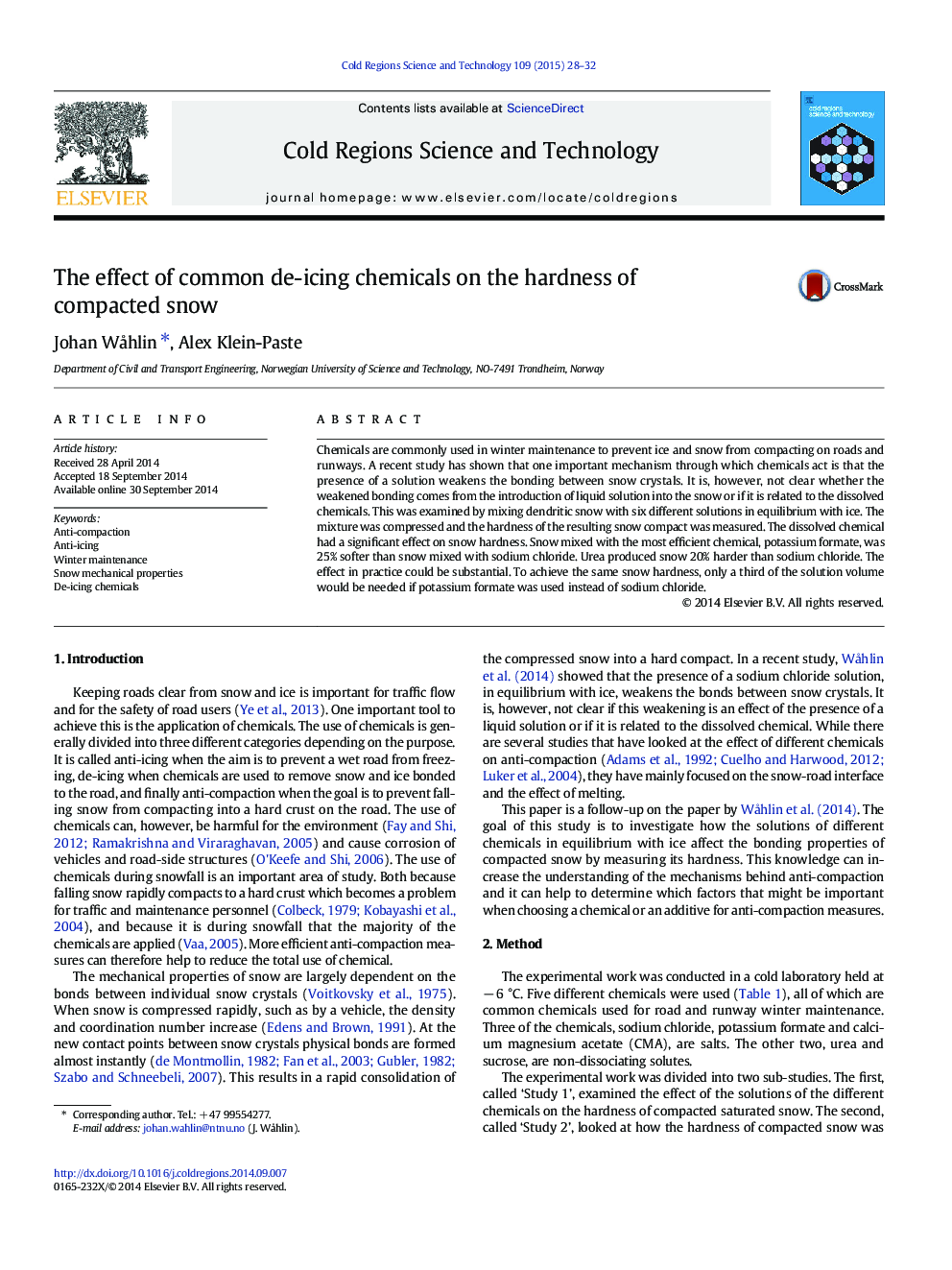| کد مقاله | کد نشریه | سال انتشار | مقاله انگلیسی | نسخه تمام متن |
|---|---|---|---|---|
| 6426909 | 1634455 | 2015 | 5 صفحه PDF | دانلود رایگان |
- The influence of the type of solute on the hardness of compacted snow-solution mixtures was studied.
- The type of dissolved chemical had a significant effect on snow hardness.
- Small amounts of additives can affect compacted snow hardness.
- Using a more effcient chemical might reduce chemical usage on roads.
Chemicals are commonly used in winter maintenance to prevent ice and snow from compacting on roads and runways. A recent study has shown that one important mechanism through which chemicals act is that the presence of a solution weakens the bonding between snow crystals. It is, however, not clear whether the weakened bonding comes from the introduction of liquid solution into the snow or if it is related to the dissolved chemicals. This was examined by mixing dendritic snow with six different solutions in equilibrium with ice. The mixture was compressed and the hardness of the resulting snow compact was measured. The dissolved chemical had a significant effect on snow hardness. Snow mixed with the most efficient chemical, potassium formate, was 25% softer than snow mixed with sodium chloride. Urea produced snow 20% harder than sodium chloride. The effect in practice could be substantial. To achieve the same snow hardness, only a third of the solution volume would be needed if potassium formate was used instead of sodium chloride.
Journal: Cold Regions Science and Technology - Volume 109, January 2015, Pages 28-32
